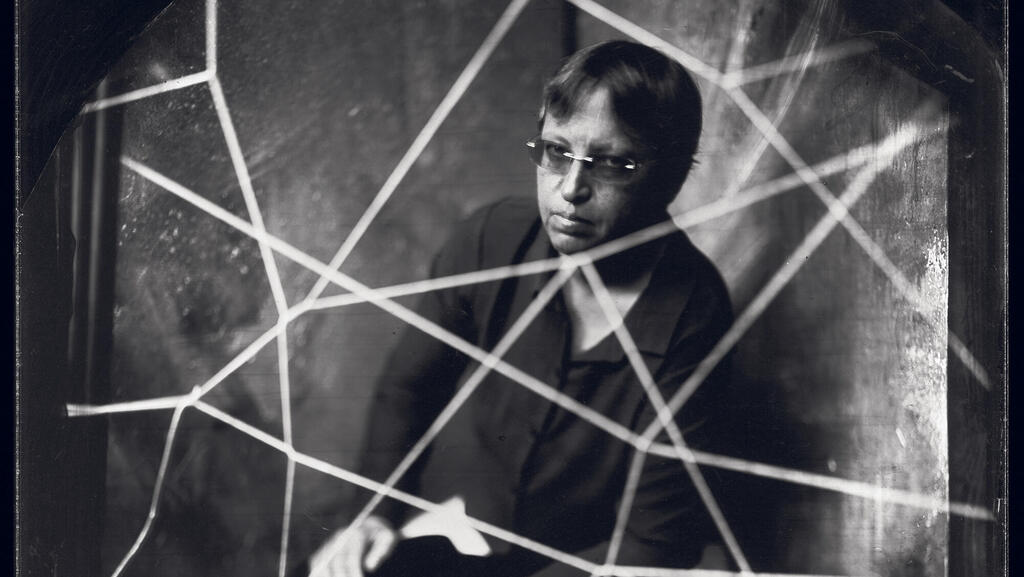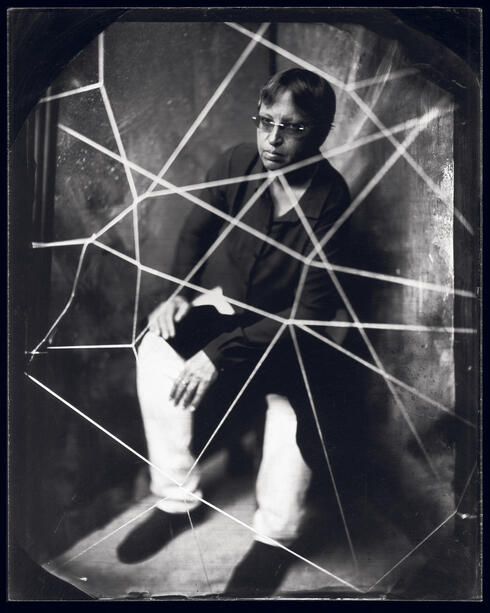
Long Exposure
Behind the Dor: “I think of myself as number 1 at Check Point, in my world"
Dorit Dor won the Israel Defense Award at the age of 25, has been Gil Shwed’s number 2 at Check Point for over 25 years, and today lives in a house with four people and 11 degrees
Dorit Dor (55) - Chief Product Officer at Check Point
"As a child I loved solving puzzles. In high school I studied in a math-physics class which only had two girls. I studied programming in a course for science-interested youth at Bar-Ilan University. When most of the boys my age deferred their army service to go to university first through the Atuda program, I wanted to check what it was all about. When I saw on the subject page 'mathematics and computer science studies' I said: 'Wow, it's like someone asked me what I want to study most.' In 1987, when I enlisted in unit 8200, the cyber world was only for those in the know, it wasn't even called “cyber” yet, but I was already walking around with the relevant set of skills."
Can you disclose what you won the Israel Defense Award for at the age of 25?
"No. Even my parents, who were at the ceremony, don't know."
Did your talent come from them?
"My father Shaya was the head of the statistics department at the Ports Authority, and on vacations I would go over numbers from unloading ships with him. My mother, Leah, is an architect who once planned a city in Iran and the border crossings with Egypt, not an architect of villas in the suburbs. She is the creative side in the family, and later became an artist - and I didn't inherit anything from that. I am very matter-of-fact, simplify problems and offer mundane solutions without falling in love with superlatives and marketing language - it's somewhat opposite of art."
Read full interview with Edward Kaprov
You joined Check Point in 1995, two years after it was established. Since then you are Gil Shwed’s eternal number 2.
"I don't feel like a number 2. I think of myself as number 1 in my world, in products, and what I lead there is a kingdom. Technology and products are a thing in itself, and in many high-tech companies, those who do what I do have the title of CEO."
And what is Shwed’s role in your territory?
"Gil has opinions and ideas and he contributes, because our challenge at Check Point is to reach revenues of more than $2 billion. My inclination is more technological and product than sales, but it's not that I didn't aspire far enough. I just didn't have an ambition to become the CEO of Check Point."
What have you learned from the many years in a male environment?
"That women are more preoccupied with what will be said and thought about them, while men run ahead. And also that women focus on what they are already good at, whereas with men the attitude is: 'I want to be CEO, what role do I have to do for that now?' These are two qualities that I have learned to shake off."
And what is the role of organizations in promoting women?
"Offer them things actively, because men will just come and ask. There is also a plus in being a woman in a male environment, sometimes it's great because everyone will remember you among all the men with suits and ties. God forbid I'm not saying that there shouldn't be women in high-tech, but the ability to stand out is an advantage in places with a female minority. You can take advantage of that."
Related articles:
Aren't you worried about the judicial coup being pushed forward by the government?
"I am a concerned citizen. High-tech is built on special people, on the edge, not on normal people. Beyond the question of whether these people or their children will stay here, and whether they will take their money out of here - Israel does not have many relative advantages, and this human advantage is a relative advantage that can be harmed very easily. My friends and I worked hard to establish the industry, we contribute to all strata of the population in a variety of ways. That's why it's important to be seen as partners in the conversation. Deep change needs to be done through dialogue and agreement."
Do you have hobbies?
"I do SUP, it's a lot of fun. It sounds purely sporty, rowing in the sea, but it's very group oriented and social. Half of the experience is the small talk when you sit on the SUP in the middle of the sea, and the coffee after. There's just a little SUP in the middle...".
Who is in the group?
"High-tech people from different environments. There's something enjoyable about a non-judgmental social experience outside of work, with people you've known for many years. For me, it's simply a way to change the context, like thinking about problems in the shower.
"Another hobby of mine is solving puzzles. Give me a puzzle and I become obsessed with it, because between me it's important for me to be able to crack it, to reach an 'aha moment'."
It probably got passed on to your boys, both of them were in the Ministry of Education's gifted programs. Did they get that at home or is it genetics?
"I've never analyzed it and I don't have a recipe for it. There is a tendency for all the members of the family to get carried away in discussions about technology and problem solving. In the army I had experience with very smart people, who I thought were sometimes too smart that it was difficult for them to be part of the environment, so I was careful that my children would not learn too fast."
And did it help you?
"Their tendency was to learn quickly, so they studied on their own. In the meantime, we have 11 degrees in our home among four people: there are two doctors, me in computer science and the eldest son Gal, who is 28 years old and has a doctorate in mathematics; my husband Tomer has four degrees, with two master's degrees in computer science and management; and the younger one, 25-year-old Idan, has a bachelor's degree in computers, and the second, in mathematics, is on the way, so soon we will have 12 degrees. Both are still in the army, by the way."
What do geek brothers do at home instead of going to a party?
"When the eldest was in the 5th grade, he cracked the cable TV code and changed it to prevent his younger brother, who was in the 1st grade, from watching the children's channel."
Did you want them to be hackers?
"No, but I liked the idea of thinking differently. There are lively conversations in the family, for example, when an interesting cyber attack is discovered, and many conversations about artificial intelligence and its meanings."
Why is a criminal mind so valued in your field?
"Any new technology that aims to bring benefit can be misused. Good cyber people also know how to think like attackers, find how something can be misused and then what to do to prevent it."
In Zoom meetings you sometimes allow yourself to appear with purple hair or with a Master Yoda background.
"It's a legitimate costume in my eyes, which helps me connect with the audience in front of me."
And on the other hand, you don't wear make-up on principle.
"I'm WYSIWYG — What You See is What You Get. It's a term in computers, and this is my philosophy: what you see on the screen is what you'll get. When Bill Gates came to Israel, a picture of him with me was published in the newspaper, and what my mother had to say was, 'Why did you wear those clothes?!'. I didn't grow up in a critical home, but it's funny that I'm photographed with Bill Gates and that's my mother's first intuitive reaction."
